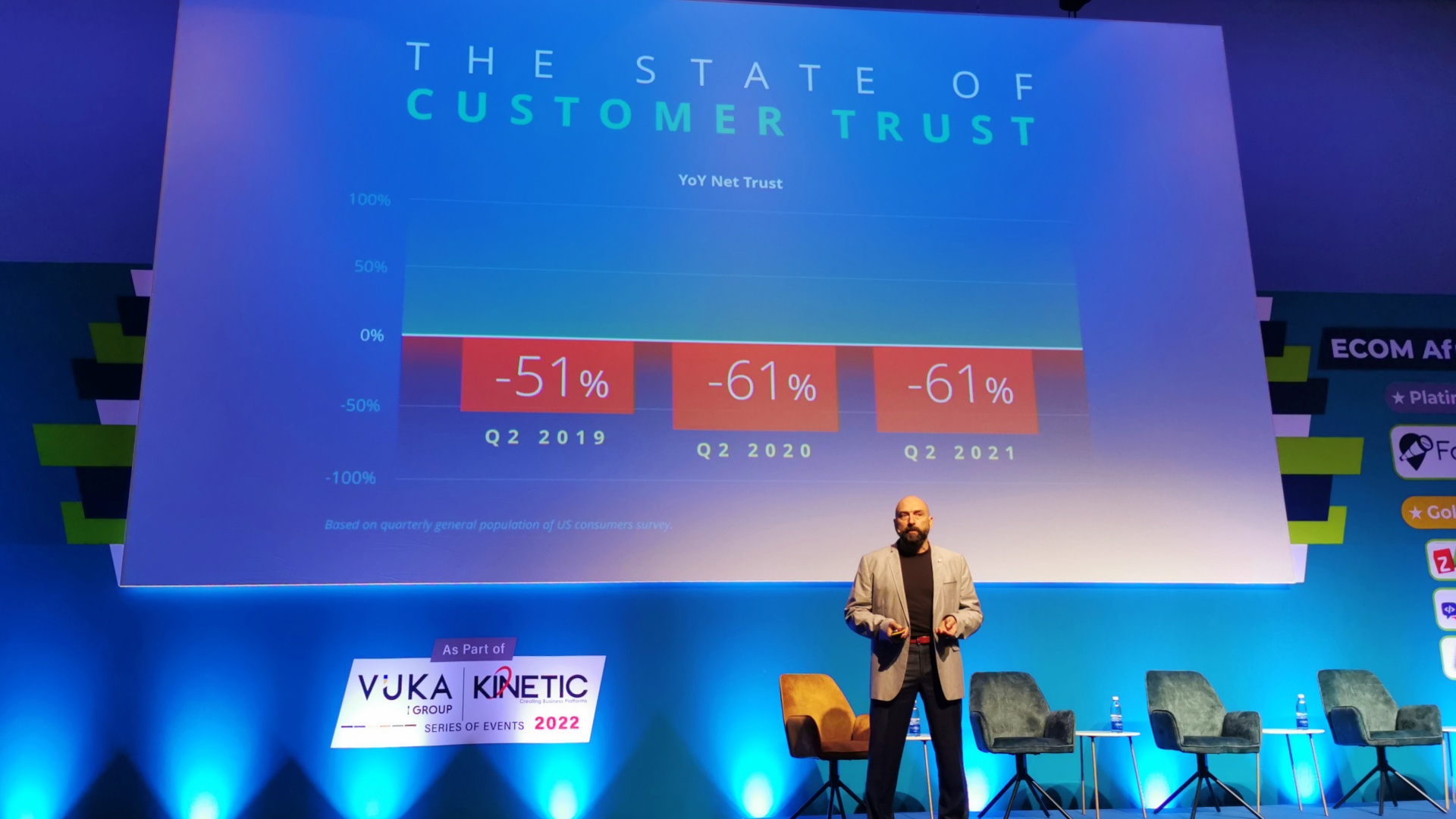Last week saw the eighth edition of ECOM Africa take place at the Cape Town International Convention Centre (CTICC).
The hybrid event saw more than 1 000 delegates attend over two days to discuss the current state of ecommerce on the Africa continent, as well as some of the trends and lessons that will shape the landscape over the rest of 2022 and years to come.
One of the major topics of conversation at the event was the importance of customer-centric thinking, with Alex Genov, head of customer experience research at Zappos, delivering the keynote address on the subject matter – Giving customers a voice in a world full of numbers.
Dispelling a few myths, along with sharing some of the insights of his own experiences at Zappos, Genov emphasised the fact that customer loyalty is something that is earned, not bought.
We got the chance to sit down and talk with Genov more on the matter, and pick his brain on a few other topics, such as PoPIA and what the metaverse could mean for ecommerce down the line.
Here’s what he shared.
Hypertext: You have a really interesting background. Can you explain how experimental social psychology factors into your research?
Alex Genov (AG): So I have a PhD in experimental social psychology and what I have brought with me to the business world are a couple of things.
First the methods of understanding humans – the psychology of how think, how they feel. Also a focus on emotions, which are important nowadays in ecommerce because a lot our decisions to purchase are based on emotional drivers and less so on rational ones. Second is a focus on individual differences, which is important for businesses to realise as their customers are not all the same.
I bring this to my role at Zappos, having applied my psychology background to the business world for 20 to 25 years now.
My role at Zappos is really to help the organisation understand customers as individuals and we work very closely with our counterparts in analytics and data science as an interplay between those disciplines to provide a rich view of the customer.
Hypertext: We have seen privacy come to the fore in recent years, especially here in SA with PoPIA. Does this limit the experiential elements of interacting with customers and force companies to embed privacy into everything they do?
AG: First of all data privacy and data security are the foundation of everything. It is required and it’s really simple good business.
It is a matter of respecting that privacy and asking your customer’s permission and that is how you earn their trust. Once you have that data, it does not mean you are entitled to use it, so it’s just like interpersonal relationships where you need to earn trust and provide value to the customer and then they are willing to freely share even more data.
That is one of those hurdles to real personalisation as it’s all interconnected. Data has been misused in the past, trust has been lost and going forward are more reluctant to give permission.
That has to be turned around with the customer in mind and their best interests at the core of the business. Balancing that with the need for the business to make profit is key.
Hypertext: Your keynote address touched on this quite a bit, but can you unpack on the important of balance when it comes to the use of data versus in-depth personalisation in understanding customers?
AG: Yes, it really is about balance as you don’t want to have too much of a reliance on data science, as it’s not going to give you an opportunity to really personalise the experience for customers.
That said, you cannot focus too much on the individuals because you are running a business at the end of the day. You have to ground your work in the numbers.
In terms of how companies should approach this balance it is very much an organisational mindset. You don’t need a massive investment or an army of researchers, but rather the right attitude and desire to understand your customers. Then you have to talk to them and listen to them.
From there, scaling your approach is not that expensive. It is then a case of combining both quantitate and qualitative elements.
Hypertext: A lot of digital land has been snapped up in the bid to build the metaverse. What is your opinion of this burgeoning space within the context of ecommerce?
AG: I know it’s real because I have two young boys that play videogames and I can tell you they are spending money, we are spending money on their behalf, in the metaverse, as they’re buying virtual outfits for their characters with real money.
So that is happening, but how that will translate to ecommerce and shopping for real clothes is yet to be determined. That said it is growing, with word of mouth and real brands appearing seamlessly integrated in digital worlds like Apex Legends. You also have virtual concerts where brands are getting involved and it is extremely remarkable.
I don’t think it is necessarily going to replace, but it could definitely complement the existing ecommerce environment like how an online site can complement a brick-and-mortar store.


